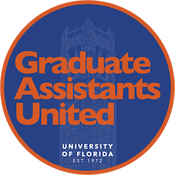|
Hi Unit Members!
We recently made a switch to our newsletter. There will still be weekly article updates for bargaining in this blog! The rest of the newsletter will be sent out monthly. PLEASE attend the weekly bargaining sessions - even if you cannot listen to most or all of the session, increased attendance on zoom and in person is invaluable to our efforts to reach these goals. Living wage proposal MUCH lower than the total cost of UNPAID labor GAU began the bargaining session with an astounding report on GAs wages and the cost of living. A survey of a significant portion of the GA population (over 400 people) showed that 45% were unable to cover monthly expenses on their salary, 20% work a second job, 81% are unable to save for an emergency and 28% experience food insecurity! The causes of these major problems are quite apparent. The cost of living soars due to rent increases, and major inflation. In fact, around 82% of GAs pay more than ⅓ of their income on rent. GAs work an average of 31.5 hours a week despite being paid for a mere 20 (in most cases). Our bargaining team ran the numbers and came up with an astounding figure. The total value for UNPAID GA labor is 75 million whereas our reasonable ask for a living wage for our valuable labor would only cost 48 million! GAU gave a compelling presentation to the UF bargaining team, and ended with testimonials from GAs about how their low stipend negatively impacts their wellbeing. This lead into a powerful proposal for a living wage of $41,675 a year. While the stipend is agreed on in article 10, our argument for a living wage is an argument that also rests on article 7 which deals with workload and defining what UF "counts" when determining paid labor. Updates by article: Article 10 - Stipends -GAU starts the session with a strong proposal for an increase in stipend to $41,675 a year and achieve a living wage for GAs. -The proposal includes merit raises as 5.6% of the GA salary pool and a lump sum raise of $2,300 for 12 month GAs and 1725 for 9 month GAs every year. Article 7 - Workload -GAU proposed several changes including -The addition of language to distinguish between academic and GA work. So that grievances in cases where an RA is overworked will be prosecutable. - Requiring UF to offer avenues if GAs are working more than their appointed FTE. This means options such as additional pay, reduction in actual FTE, increase in paid FTE, etc. -Departments must also review workload expectations and report them every year -Lastly, departments are encouraged to make a clear distinction between paid work and academic work. In the case that the department makes no distinction the default is proposed to be 20 hours with an additional 3 hours multiplied by the number of research credit hours they are enrolled in. Article 4 - Appointments, reappointments, termination -GAU discussed changes that our team made since UF last proposed. -Language was added back in to explain the purpose of the article and clarify the term through which a letter of offer is valid. -Added language to encourage the university to offer 12 month contracts whenever possible. -Added a procedure for offering a personal improvement plan (PIP) and notice to a GA if the department is considering not renewing a contract based on performance. -GAU and UF also discussed finding a solution so that 9 month GAs can be offered summer employment but to prevent departments from using these appointments to not pay the students tuition and/or not offer a 12 month appointment. Article 5 - Employee Performance Evaluations -GAU added language to this article in order to create a default evaluation result in the event that no evaluation occurs. They also clarified that evaluations must state explicitly what the result of the evaluation is. -GAU also added a requirement that employees must be offered a PIP if given an unsatisfactory evaluation and a schedule of improvements. Article 21 - Discipline -UF added what information must be included in notification of an investigation -UF agrees to drop a clause that will protect those who use a bathroom that does not match their birth sex. Article 2X (UF proposed article) - Joint training -UF proposed a new article that would mandate both bargaining teams to attend a joint training every 3 years, before beginning the full book bargaining process. The training is a service offered by the state. Article 28 - University of Florida Regulations -UF and GAU bargaining teams discussed the new regulations that were added. Several subsections were crossed out, this seems to create more strange situations but does not account for them in the regulations. GAU will discuss before moving forward. Article 16 - Use of Facilities (GAU Rights) -UF returned GAU’s previous proposal and attempted to eliminate GAU’s released time (RT) positions for GA’s entirely. -UF also removed GAU’s proposed parking pass addition to the article |
BARGAININGCollective bargaining is the process by which labor unions negotiate with employers to reach a contract on terms of employment, including salary, health care, benefits, and workplace safety. Each year, GAU bargains with UF over such terms. Archives
June 2024
Categories
All
|
|
Connect with GAU
[email protected] Mailing Address PO Box 112014 Gainesville, Florida 32611 Physical Address Yon Hall 224 1908 Stadium Road Gainesville, Florida 32611 Office Hours View Schedule |
Follow GAU
|
Copyright © 2002-21 Graduate Assistants United at the University of Florida. All rights reserved. Affiliated with United Faculty of Florida, Florida Education Association, National Education Association, American Federation of Teachers, and AFL-CIO.

 RSS Feed
RSS Feed
